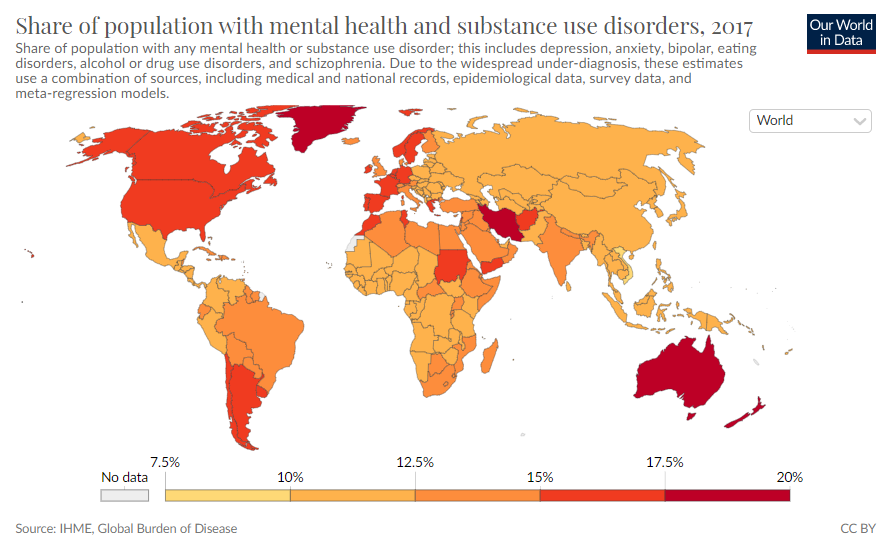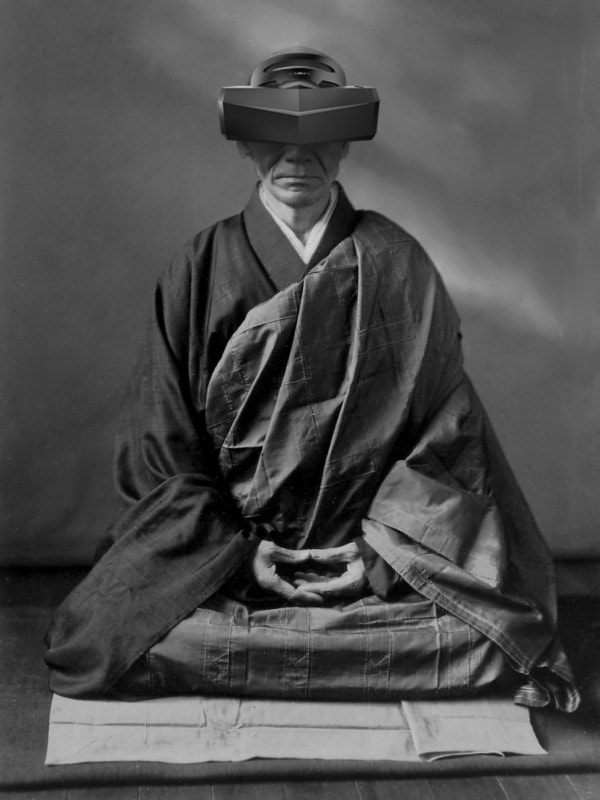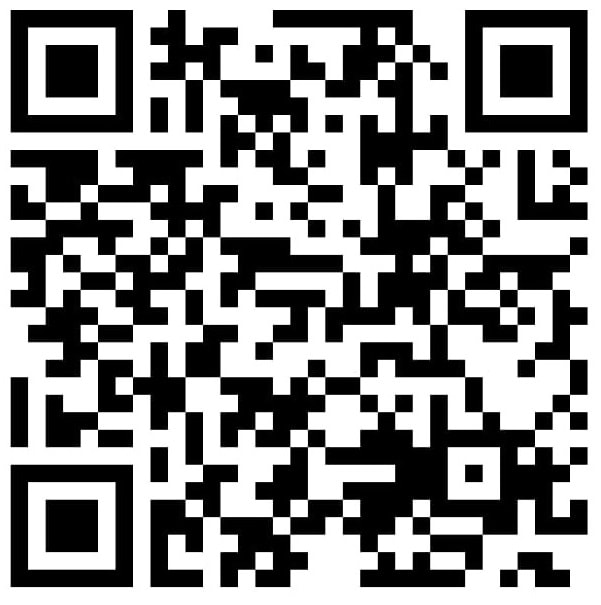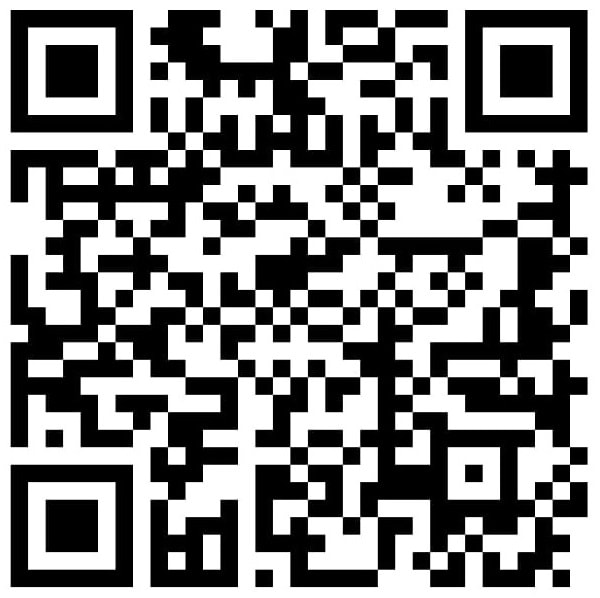The challenge
One in six young people will experience an anxiety disorder at some point in their lives.
Identified rates of anxiety and depression in young people have increased by 70% over the past 25 years. (Royal Society for Public Health, 2017)
Identified rates of anxiety and depression in young people have increased by 70% over the past 25 years. (Royal Society for Public Health, 2017)
|
Research suggests that young people who are heavy users of social media - spending more than two hours per day on social networking sites such as Facebook, Twitter or Instagram - are more likely to report poor mental health, including psychological distress (symptoms of anxiety and depression).
|
Naturally, young people are not the only ones susceptible to mental health issues.
According to Gallup’s World Poll, many people in the developed world actually hate their jobs. In fact, only 15% of people are actually engaged with their jobs worldwide. Stress and clinical burnout and subsequent suicide in Japan have caused the government to intervene — 94% of Japanese workers are not engaged at work.
According to Gallup’s World Poll, many people in the developed world actually hate their jobs. In fact, only 15% of people are actually engaged with their jobs worldwide. Stress and clinical burnout and subsequent suicide in Japan have caused the government to intervene — 94% of Japanese workers are not engaged at work.
ENSO VR
Decades of research has shown that Virtual Reality (VR) technology can be used efficaciously to treat anxiety disorders, for pain management, stress reduction, and other mental health purposes. - Philip Lindner, Stockholm University, Faculty of Social Sciences, Department of Psychology, Clinical psychology.
|
|
Mindfulness-based stress reduction (MBSR) aims to teach participants to respond to stressful situations “mindfully” – a state in which one focuses on the present moment, accepting and acknowledging it without getting caught up in thoughts that are about the situation or emotional reactions. This enables people to respond to the situation by making conscious choices to respond instead of reacting automatically.
|
It is only with the recent advent of consumer VR platforms that widespread clinical implementation and scalable dissemination of self-help applications have become possible. We aim to move VR interventions from university labs into clinics and the hands of regular patients.
Doing our bit
The COVID-19 pandemic and resulting economic downturn have negatively affected many people’s mental health and created new barriers for people already suffering from mental illness and substance use disorders.
|
As the pandemic wears on, it is likely the mental health burden will increase as measures taken to slow the spread of the virus, such as social distancing, business and school closures, and shelter-in-place orders, lead to greater isolation and potential financial distress. Though necessary to prevent loss of life due to COVID-19, these public health measures expose many people to experiencing situations that are linked to poor mental health outcomes, such as isolation and job loss. Additionally, feelings of anxiety are increasingly common, as people are fearful of themselves or loved ones falling ill and are uncertain of the repercussions of the pandemic.
During this unprecedented time of uncertainty and fear, it is likely that mental health issues and substance use disorders among people with these conditions will be exacerbated. In addition, epidemics have been shown to induce general stress across a population and may lead to new mental health and substance use issues. |
Getting Involved
To date, ensoVR has been designed, developed and tested by a handful of awesome volunteers within the WeAreVR.africa community (much thanks Ryan, Jade, Malcolm, Sean, Rick, Steve, Telmo, Dan and our supporters). Any support would go a long way towards expanding our efforts to provide high quality mental health support free of charge to those in need.






